Although the use of plastic trays in food dehydrators is considered safe, many consumers today remain concerned about the potential health threats associated with its use. Rightly so, since countless studies have shown that the estrogen-mimicking chemical Bisphenol A, may be harmful to human health. When it comes to food dehydrators the main concern is that the plastic trays contain hazardous chemicals that may leach into the food when drying at high temperatures. In this article, we will have a closer look at whether food dehydrators cause cancer and list stainless steel alternatives for those concerned about their health.
Why the plastics in certain food dehydrators may be unsafe
Food dehydrators fall into 2 categories when it comes to the type of trays and case material used, namely plastic and stainless steel. Certain machines may have a combination of both stainless steel trays and a plastic interior shell. The question of plastics versus stainless steel has become quite an issue for many health-conscious individuals who want to create 100% chemical-free snacks. But are concerns that food dehydrators cause cancer, valid?
These plastics used in dehydrators may cause cancer
There are many types of plastics used in the food industry today that are considered safe according to industry standards. Nevertheless, many consumers still do not consider even PBA-free plastics used in food contact surfaces safe. If the studies are anything to go by it is no wonder most consumers are put off by dehydrators that contain plastics. For example, a 2011 study shows that most plastic products release estrogenic chemicals. The same study further states that in some cases, BPA-free products released chemicals having more EA than did BPA-containing products. The two plastics most commonly used in food dehydrators today are polypropylene (PP) and polycarbonate (PC).
Polycarbonates(PC) are a group of polymers that create a clear hard plastic marked with recycle symbol “7”. It also has thermoplastic qualities. This type of material liquefies at a melting point of about 155°C (311 °F), which makes it very useful for applications that need to be transparent, impact, and heat resistant. The optical lenses in eyewear for example are commonly manufactured using polycarbonates. Although PC has many useful properties, products manufactured with PC may contain the precursor molecule bisphenol A (BPA). The reason people are concerned about BPA is that once in the body it may be harmful to human health.
Polypropolene (PP) is generally considered safer than other plastics and is FDA approved for food contact. It is a softer and more flexible plastic used for products such as straws, yogurt, ketchup containers, and certain water bottles.
In response to consumer concerns, BPA in plastics is now replaced with bisphenol S (BPS) and bisphenol F (BPF). In studies, however, these 2 chemicals have shown to be endocrine disruptors similar to BPA.
BPA’s and PBS’s are dangerous to human health because they can cause:
- Cancer
- Cardiovascular disease
- Reproductive problems
- Disruption of brain development in fetuses, infants and children
- Diabetes
- Metabolism problems
- Asthma
Which type of food dehydrator is safer?
The plastics market remains largely unregulated to date. The FDA does however provide manufacturers working with food-contact applications with guiding documents, but it does not establish legally enforceable responsibilities. In other words, something may be suggested or recommended, but not required. After an analysis done in 2008 by the FDA concluding that BPA’s are safe, it only later amended the rules on the use of BPA in packaging after the industry finally stopped using it in infant formula packaging in 2013 (source).
Although there seem to be individual efforts by companies to reduce exposure to BPA and substitutes, the consumers worried that food dehydrators cause cancer, should remain wary of plastics, and make informed decisions when deciding to buy a dehydrator with plastic trays or casing.
Brands like Excalibur are aware of customer concerns and do well to provide them with further information about the type of plastics they use.
Is the Excalibur Tray Screen Material BPA free? We use polypropylene #5. It’s the safest plastic for food contact. For the case material, we use polycarbonate because it’s virtually indestructible. Food does not come into contact with the case material. Food will only come into contact with the polypropylene #5.”
Is the case material FDA-approved polycarbonate? Yes. The case material is safe and doesn’t give off harmful fumes when used under 160F. Other manufacturers use lower-quality plastic that does give off harmful fumes. The polycarbonate we use is recognized as safe by the U.S. Food & Drug Administration, European Commission’s Scientific Committee on Food, United Kingdom Food Standards Agency, Japanese Ministry of Health, Labor and Welfare, and other regulatory agencies worldwide. *Always be sure you have FDA-approved food contact polycarbonate. There are many different types of polycarbonates.
Not all companies are upfront with information. It is also generally assumed that cheaper food dehydrators contain plastics that release harmful substances at higher temperatures. Consumers concerned that food dehydrators cause cancer can use stainless steel as a viable alternative. Not only is it PBA-free, but it is also durable, robust, and easy to clean. The only downside is the usually higher price tag. Each consumer will have to weigh up the pros and cons themselves.
When buying a food dehydrator with plastic trays or casing, make sure the plastic used is at least BPA-free. If the information is not readily available on the company website or in the product description, rather move on. You can also enquire from the company directly to enquire for extra peace of mind.
Here is our list of favorite stainless steel food dehydrators you might like:
MAGIC MILL Food Dehydrator Machine
6 Stainless Steel Trays | Digital Timer | Temperature Control | Safety Over-Heat Protection
ETL Approved – (MFD-6060)
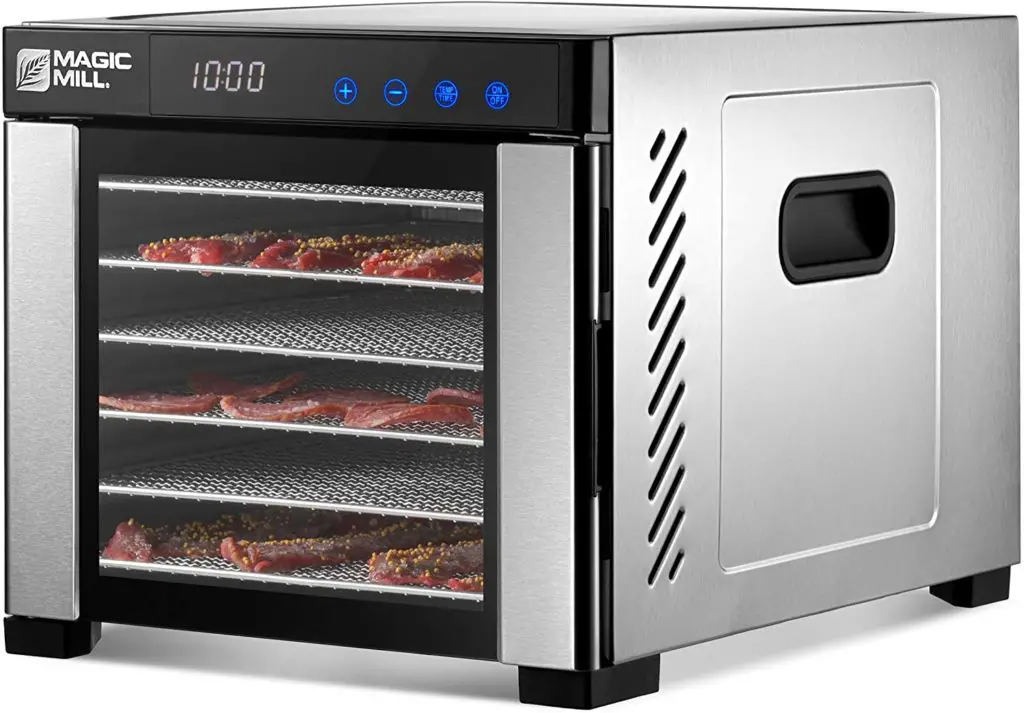
STX International STX-DEH-1200W-XLS Dehydra Commercial Grade Stainless Steel Digital Food Dehydrator
10 Trays | 1200 Watts | 165 Degree Fahrenheit | Jerky Safe with 15 Hour Timer
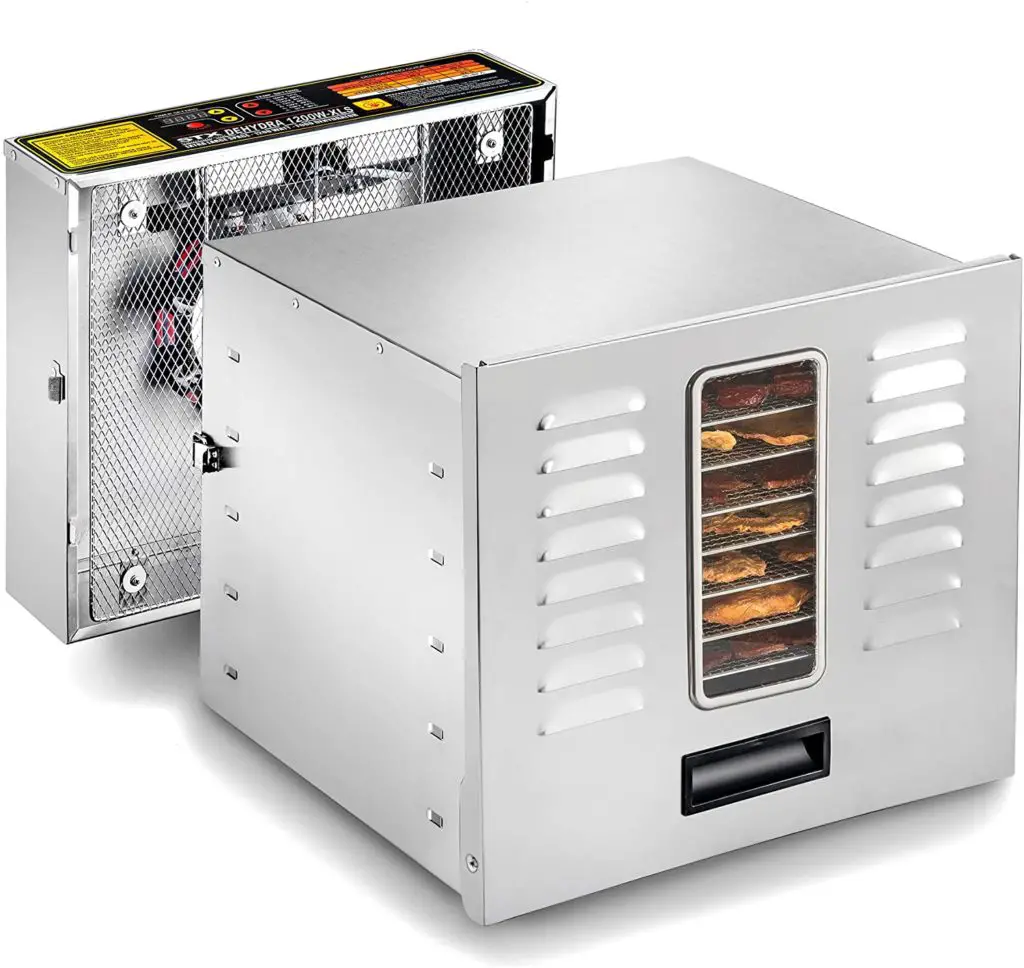
TSM Products Stainless Steel Food Dehydrator | 5 Stainless Steel Shelves
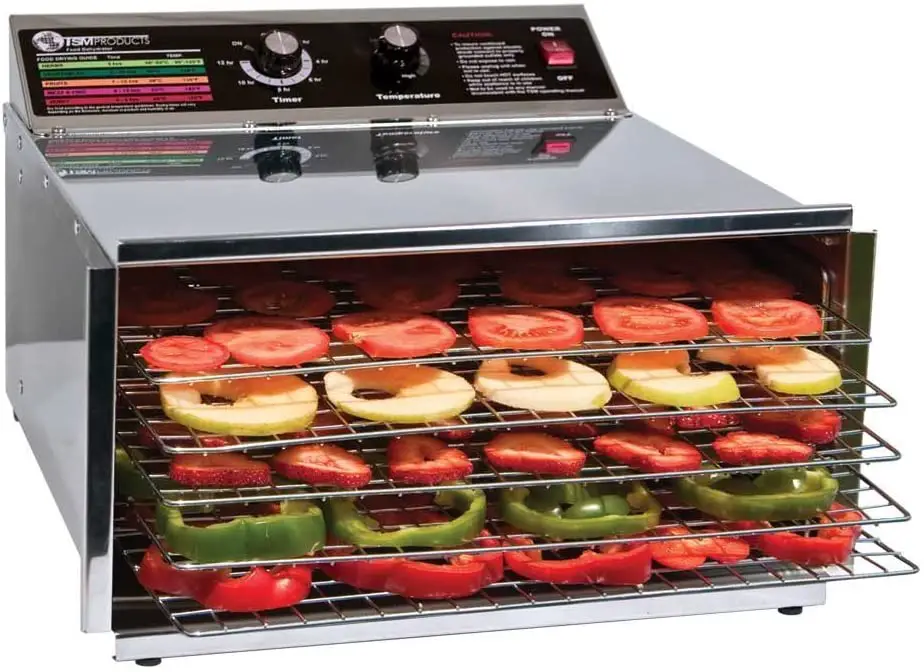
Excalibur EXC10EL Electric Food Dehydrator | 10 Tray
NSF Approved | Digital Controller 99-Hour Timer | Adjustable Time and Temperature Auto Shut Off
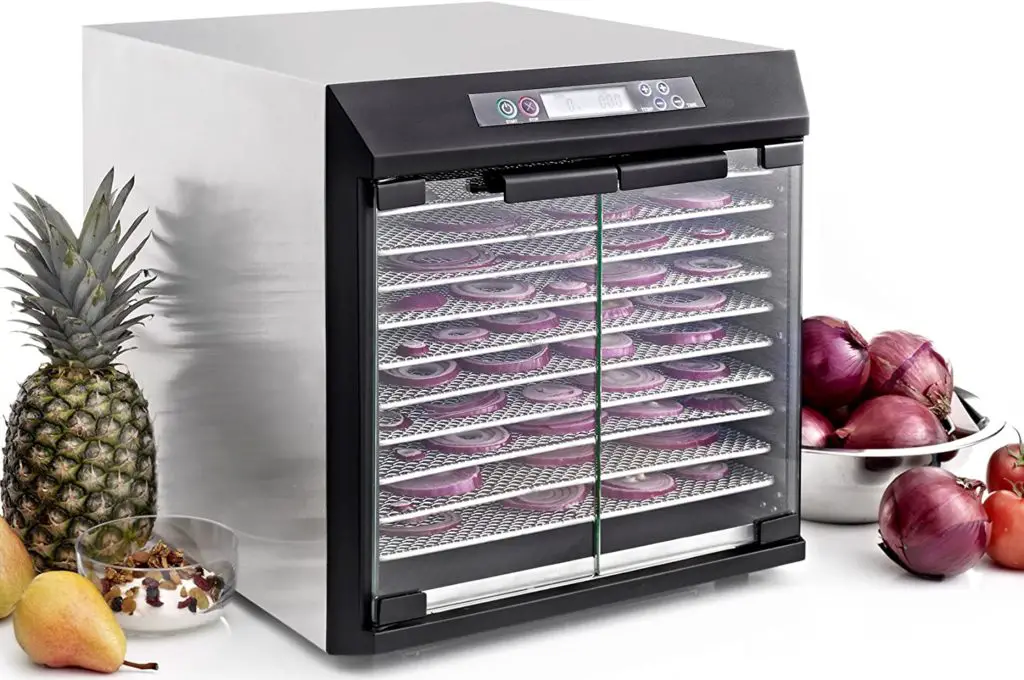
COSORI Premium Dehydrator | 6 Trays
Food Jerky, Fruit, Meat, Dog Treats, and Herbs, Dryer Machine |Temperature Control, | ETL Listed
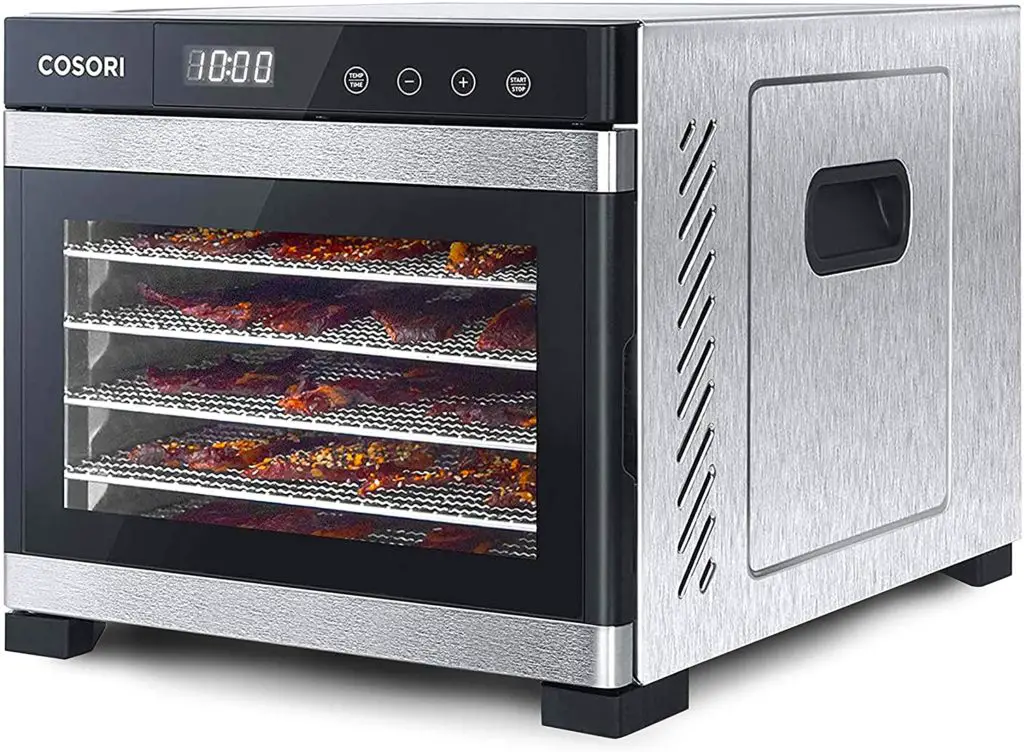
Last thoughts on whether food dehydrators cause cancer.
Stainless steel food dehydrators offer people worried that plastic food dehydrators cause cancer, a viable alternative. These machines are generally more robust (for those wanting to dry outside) and also perfect for small home businesses that dry jerky, seeds, herbs, fruits, and even fondant. For regular users that dry on a weekly basis, stainless steel dryers make more sense, but for occasional dryers, using a BPA-free plastic dehydrator may be more economical. Choose your dehydrator wisely and you will have many happy years of healthy dried food to enjoy.
Others enjoyed these articles too:
Is a dehydrator expensive to run?
Can I leave a food dehydrator on overnight?
Are dehydrator trays dishwasher-safe?
Do food dehydrators kill bacteria?
Can I use a food dehydrator to dry fondant?
Disclaimer and Cautionary Note: Sunny Life Mag is a digital magazine for entertainment. The contents of this website are for informational and entertainment purposes only and do not constitute expert or medical advice, nor are any health claims intended to be made. Not any of the products recommended in the articles have been independently tested for safety. Report all health and safety issues related to the products mentioned in articles to the manufacturer directly.
Affiliate Disclosure: Some of the links that appear on this site are affiliate links. We may receive a small commission when you make a purchase. These commissions help to improve this site and to fund further research. The buyer does not pay any commission whatsoever but is an arrangement between the supplier and this site. Our selection of products is carefully curated and includes only those products we believe in.
Image credit: Photo by Disha Sheta from Pexels




